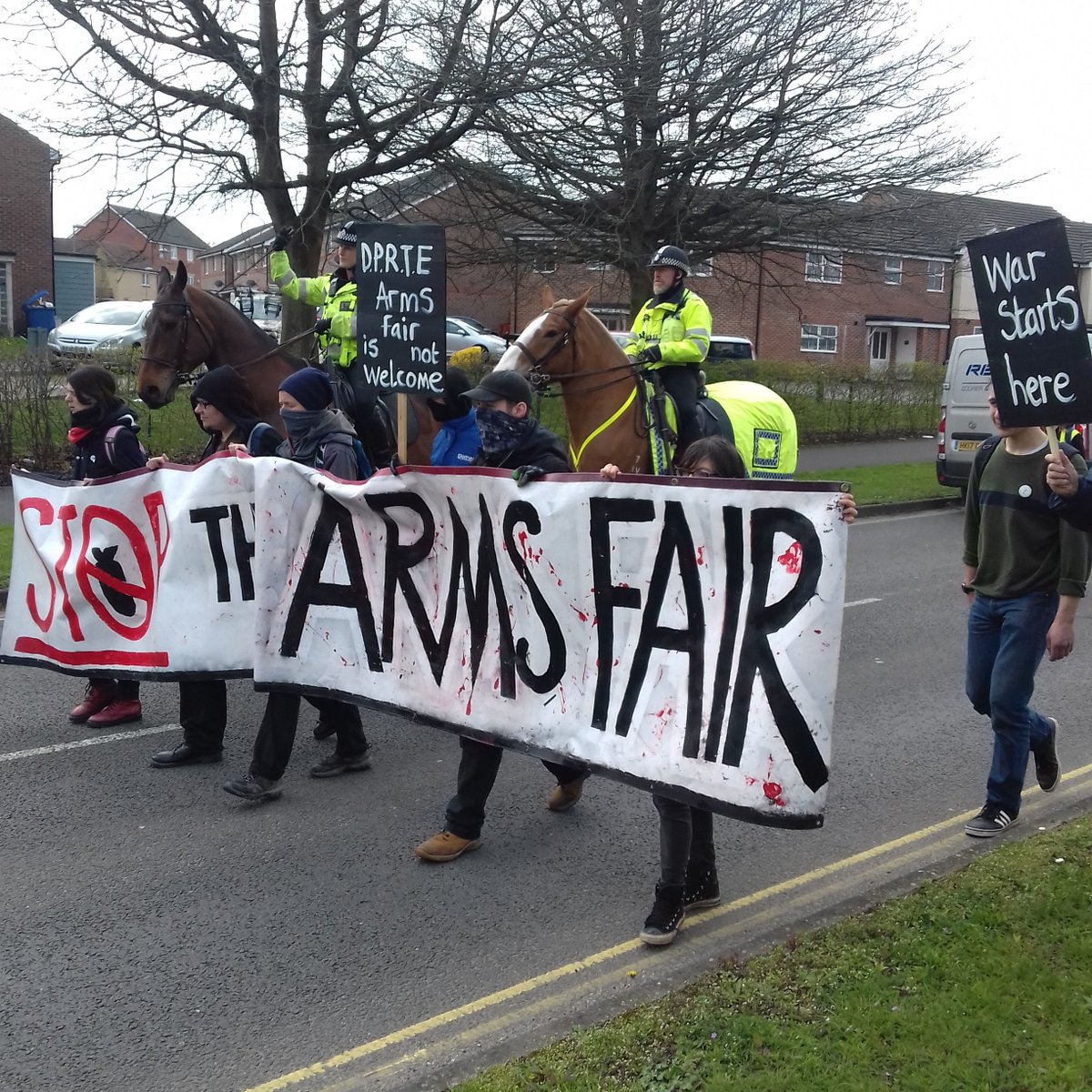By Adri Nieuwhof and Basma Salem
On 11 March 2011, the Danish-British security firm G4S announced its exit from some contracts in the West Bank. The company will continue to deliver security services to illegal settlements in the West Bank and to prisons in Israel.
G4S came under scrutiny after Who Profits, part of the Israeli Coalition of Women for Peace, and Danish financial watchdog DanWatch, revealed in November last year that the company supplied equipment and services to Israel for use at checkpoints, police stations and settlements in the occupied West Bank and at Israeli prisons.
See http://electronicintifada.net/v2/article11678.shtml and http://electronicintifada.net/v2/article11718.shtml
Following the disclosure of G4S involvement in the Israeli occupation, which was extensively reported in the Danish media, local politicians from socialist parties in Copenhagen, Gladsaxe, Roskilde, Odense and Aarhus have put the contracts of the municipalities with G4S on the agenda
of their city council.
Legal opinion on G4S activities in the West Bank
Prior to its 11 March statement, in an effort to answer concerns from the Danish media and civil society, G4S contracted Danish expert on international law Hjalte Rasmussen to write a legal opinion on G4S’s activities in the occupied West Bank, including East Jerusalem. Rasmussen based his legal opinion on his previous, similar study for G4S done in 2002. During his three-day trip to Israel and the West Bank at the end of January 2011, he visited a number of banks and supermarkets in East Jerusalem, and a shopping mall in the illegal settlement of Maale Adumim. He also collected information from G4S in London and Israel He concluded that G4S’s activities did not violate any national or international law.
Although Rasmussen did not visit Israeli prisons, he says in his opinion that there is no evidence of “systematic abuse of prisoners in Israeli jails,” in contradiction to the documentation of numerous human rights groups.
The arrest and detention of political prisoners is one of the primary means Israel has historically employed to try to repress the Palestinian struggle for liberation.
Rasmussen argues in his report that inmates in Ofer prison are “common criminals” that have been tried by independent, neutral criminal courts, “like inmates in other prisons on Israeli soil”. He writes that he did not come across any information on systematic abuse of prisoners in Israeli jails.
Dan Church Aid (DCA) and Amnesty International Denmark expressed their discontent in the Danish press about the poor quality of Rasmussen’s report, the former describing it as “shameful” as it contains so many errors.
Rights of Palestinian political prisoners violated by Israel
Contrary to what Rasmussen writes, the rights of Palestinian political prisoners are systematically violated by Israel. All Palestinian political prisoners, including child detainees, are administratively classified as “security prisoners” as if Palestinians, by simply being Palestinians constitute a threat.
As “security prisoners”, Palestinian prisoners are denied the rights to phone calls, furloughs, and visits from friends and relatives, other than close relatives, are denied. In addition, prisoners are denied the right to visits that allow them to spend some time in private with their legal partner.
In a briefing note on rights of Palestinian Prisoners of March 2011, Israeli and Palestinian human rights organizations report that 5, 640 Palestinian political prisoners were imprisoned in Israel by January 2011. Among them were 37 women, 213 minors, and 187 Palestinians that are held
in administrative detention. Thirty of the detained children are between twelve and fifteen and a half years old. Over 2,000 Palestinian children have been charged with security offenses between 2005 and 2009. They were held without charge for up to 8 days and prosecuted by military courts.
See briefing note at http://www.mezan.org/upload/11648.pdf
The rights of political prisoners from occupied Palestine are violated, because of their systematic transfer to prisons in Israel, contrary to the Fourth Geneva Convention, in particular articles 76, 66, and 49, which forbid an occupying power from transferring and holding prisoners from an occupied
territory in the occupying state. This transfer policy affects sixty percent of the Palestinian child detainees. Following the transfer to prisons in Israel, lawyers and family members who live in the West Bank and Gaza need a permit to visit Israel. The restrictive permit system is an obstacle
for prisoners to meet their lawyer or family.
In addition, as signatory of the UN Convention on the Rights of the Child, Israel should take “the best interests of the child” as “a primary consideration” in all its actions concerning children. In reality, Israel does not meet the obligations of the convention in its treatment of Palestinian child detainees. For example, although the UN Committee on the Rights of the Child (CRC) urged Israel to never hold criminal proceedings against children in military courts, Palestinian children continue to be tried in military courts. The same counts for the call to never hold children in administrative detention (see http://www2.ohchr.org/english/bodies/crc/docs/CRC-C-OPAC-ISR-CO-1.pdf).
Furthermore, Bana Shoughry-Badarne of the Public Committee against Torture in Israel in Jerusalem, highlighted Israel’s long-term policy that “allowed the use of torture by investigators and those active in intelligence work” when she spoke at the UN International Meeting on the
Question of Palestine in Vienna in early March.
Shoughry-Badarne said that in 1999, certain methods of torture had been banned, such as flogging, handcuffing of prisoners, covering their heads with wet bags, compelling them to sit in uncomfortable positions for long periods, and sleep deprivation. However, all these methods of violence continue to be employed, “despite a total ban on torture enshrined in human rights treaties and covenants to which Israel had acceded”. Moreover, Israeli security authorities have developed new physical and mental tortures, according to Shoughry-Badarne.
G4S security services to Israeli prisons
G4S states in its own promotional material that it supplied a perimeter-defense system for the walls around the Ofer prison compound, all the security systems in Keztiot prison, and a central command room in Megido prison. According to G4S these prisons incarcerate 4,900 Palestinian “security prisoners”. (See http://electronicintifada.net/v2/ article11678.shtml).
By providing services to Israeli prisons, G4S contributes to the facilitation of Israel’s violations of rights of the Palestinian political prisoners.
In their 11 March statement, G4S announced that it will “aim to exit a number of contracts which involve the servicing of security equipment at the barrier checkpoints, prisons and police stations in the West Bank.”
In response to our request for clarification as to whether the contracts with prisons in Israel were excluded, G4S refused to give additional information. The company instead sent an email repeating the exact wording of its statement, leading to the conclusion that G4S will not end the delivery of “security services” to prisons in Israel.
Moreover, the company states it “will aim to complete this exit as soon as possible, but also recognize that we have contractual obligations to our customers which we must take into consideration”. This could mean that G4S will stay involved in the provision of security services in the West Bank for years.
In any case, in its 11th March statement, G4S has explicitly excluded the delivery of “security services” to illegal settlements. In 2004, the International Court of Justice (ICJ) reaffirmed the illegality of the construction of the wall and settlements in the occupied West Bank, including
East Jerusalem. According to the ICJ, construction activities should stop immediately and the wall and settlements be dismantled. By providing security services that contribute to sustain illegal settlement businesses, G4S contributes to Israel’s violations of international law. G4S’s claim that
the provision of these security services are not discriminatory or controversial and “help to provide safety and security for the general public no matter their background” is unfounded. The general public in the illegal settlements is solely Jewish.
As long as G4S provides security services to Israeli clients in the OPT, including East Jerusalem, and to prisons in Israel BDS activists should keep the company under pressure.
G4S Israel statement march 11-1-1



1 Comment
Edinburgh University students vote to ban G4S : NL-Aid · 28th October 2011 at 7:02 am
[…] in the delivery of security services to illegal Israeli settlements in the occupied West Bank and Israeli prisons. Indeed, G4S has stated in its own promotional material that it supplied security services to the […]